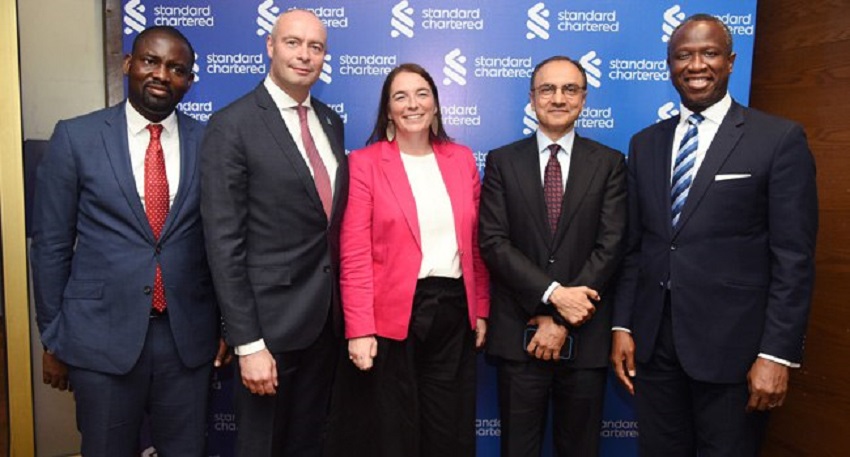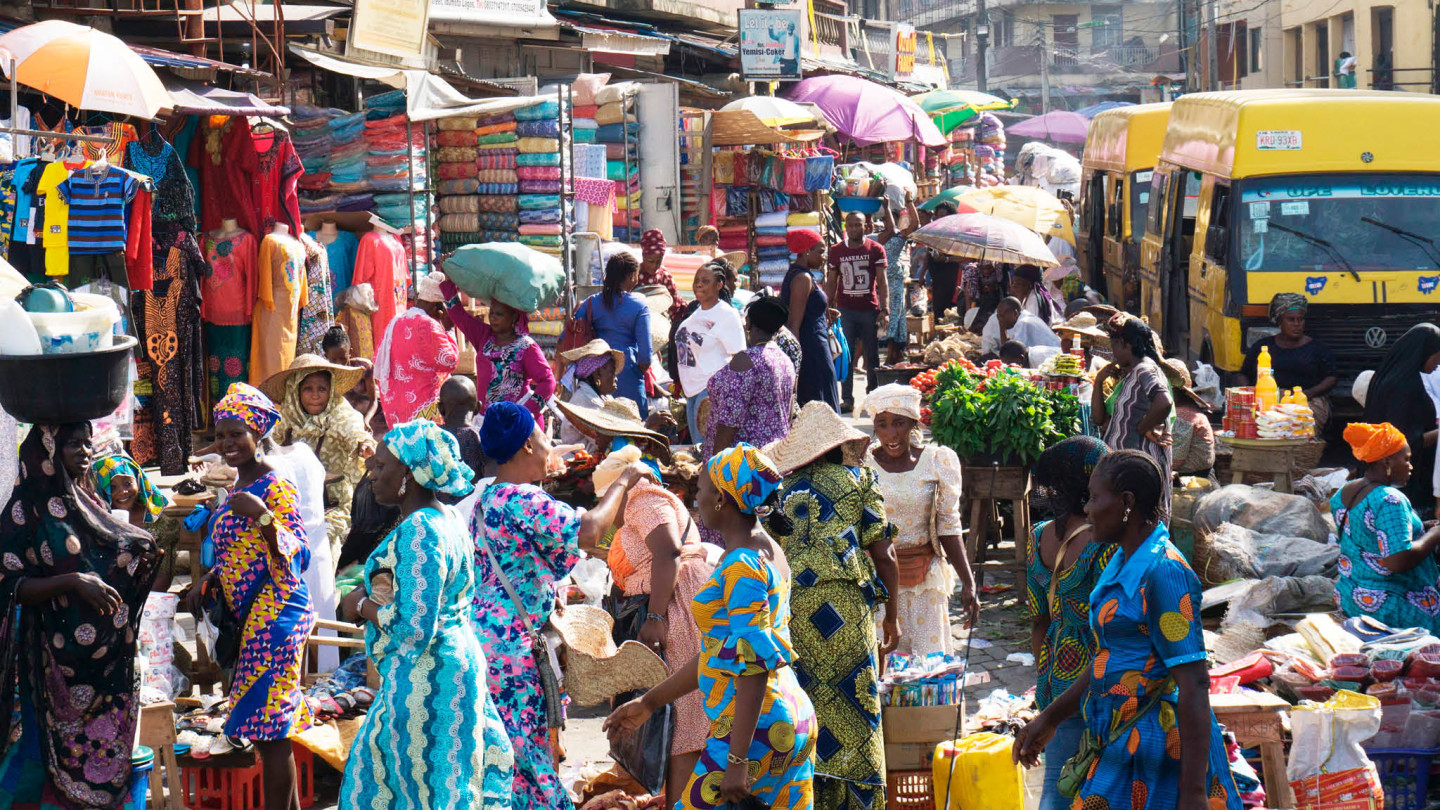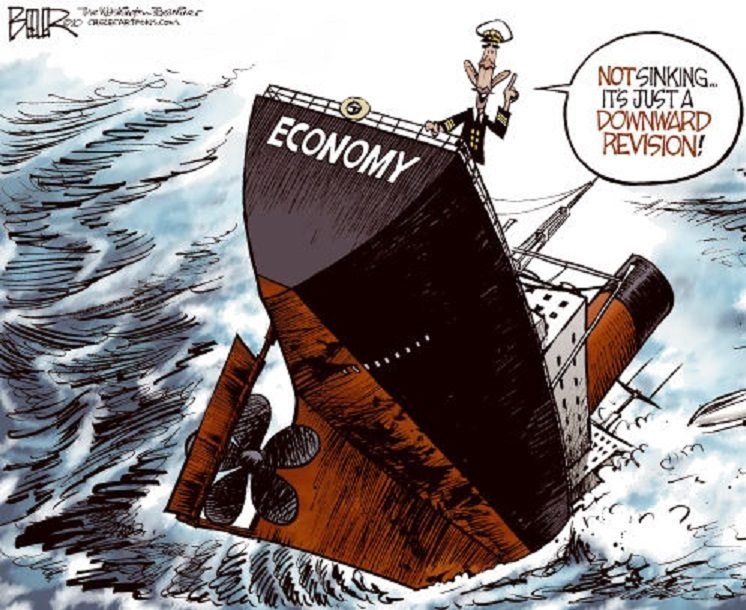Economy
Effective Fiscal, Monetary Policies Will Revamp Nigerian Economy—Standard Chartered Bank

By Adedapo Adesanya
Standard Chartered Bank (SCB) Nigeria, through its forum, has said that Nigeria needs to balance effective fiscal and monetary policies to awaken its ailing economy.
This was the crux of the matter at the company’s recently hosted Global Research Briefing which sought to identify the key concerns for the Nigerian financial market, pool solutions from a cross-section of financial and oil sector experts, and chart a course in a bid to reverse the negative situation.
This is coming as the world continues to contend with the effects of the COVID-19 pandemic.
Held in Lagos, the event provided a conducive environment for market leaders to dialogue on an array of key economic issues ranging from the expected implementation of foreign exchange and monetary policy reforms to interventions needed to address the challenges in the oil and gas sector.
In his welcome remarks, the CEO of Standard Chartered Bank Nigeria, Mr Lamin Manjang, noted that the session came at a time of great uncertainty and volatility both globally and locally, marked by the spectre of high inflation and slow growth.
“We have seen a very aggressive tightening of monetary policy across almost all central banks in the world. In Nigeria, we have seen the same phenomenon of high inflation. But it’s not all doom and gloom. We have been through similar challenges in the past, and we eventually came out of it,” he stated.
During her keynote presentation, SCB’s Regional Head of Research, Africa and the Middle East, Ms Razia Kahn, highlighted the need for greater reassurance on FX and other policy reforms for Nigeria to attract foreign investor participation.
“In terms of the policy response, Nigeria has perhaps been more tested than many other economies. A lot of the transmission of the different pressures into the great slowdown has been exacerbated by the policy decisions in Nigeria. Still, Nigeria stands apart from many of its African counterparts simply because it is seen as an economy that has scale,” she explained.
Addressing the challenges within the petroleum industry, Ms Khan moderated an Oil and Gas panel session which included Mr Leke Ogunlewe, former Head of Global Banking/Corporate and Institutional Banking, SCB; Mr Chikezie Nwosu, MD/CEO, Waltersmith Petroman Oil Limited; and Mr Femi Ogunbi, Treasurer, ExxonMobil.
Speaking on challenges brought on by the implementation of the Petroleum Industry Act, Mr Ogunlewe noted that there were concerns regarding the regulation of the significant investments of oil & gas companies in social initiatives, particularly as they relate to their host communities.
“We now have a regulator that monitors these organizations in a way that is unfavourable to the communities. I’m curious to see how that will work out because I know from experience that several oil & gas companies spend much more than the PIA stipulates,” he stated.
In his remarks, Mr Ogunbi underscored the need for the market forces of demand and supply to play a greater role in Nigeria’s oil & gas policies. According to him, Nigeria needs more enablers and respect for market forces in virtually every sector.
Discussing the need to attract Foreign Direct Investment, the Financial Markets panel included Mr Ayodeji Adelagun, Head, Financial Markets, Standard Chartered Bank Nigeria; Ms Elizabeth Oguegbu, Head of Financial Markets Sales, Standard Chartered Bank Nigeria; Mr David Alao, CEO, Leadway Asset Management Company; and Ms Tumi Sekoni, MD, FMDQ Exchange.
During the discussion, Mr Alao noted that serious FX reforms are necessary for the international investing public to regain confidence in Nigeria, just as Ms Sekoni called attention to the likelihood of FX reforms being deferred till after the coming elections.
Speaking at the session, Mr Olukorede Adenowo, Executive Director, Corporate Commercial and Institutional Banking, said, “As a global bank with a rich network of experience and expertise in Africa and the Middle East, we are in a unique position to support the massive shift of capital towards sustainable finance, which has become a priority for stakeholders, investors and clients, alike. The people and businesses we serve are the engines of trade and innovation and are central to the transition to a fair, sustainable future.
“The Global Research Briefing provided an opportunity for us to share insights into the challenges within the country and, more so, the tremendous opportunities that exist as well as providing solutions that governments can take to make their markets more attractive for investment.
“We are determined to support our clients with identifying such opportunities and developing significant sustainable finance solutions to grow their businesses. This will ensure that we can deliver on our aspiration to be the Bank that’s continuously driving commerce and prosperity for our clients and the economies we operate in.’’
Economy
CBN Reduces Interest Rate by 50 Basis Points to 26.50%

By Adedapo Adesanya
The Central Bank of Nigeria (CBN) has cut the interest rate by 50 basis points to 26.50 per cent from 27 per cent.
Nigeria’s apex bank announced this during its two-day 304th Monetary Policy Committee (MPC) meeting, which concluded on Tuesday in Abuja.
This comes after the country’s interest rate cooled in January to 15.10 per cent from 15.15 per cent, according to the National Bureau of Statistics (NBS), strengthening the case for a reduction.
The CBN Governor, Mr Yemi Cardoso, said all members of the MPC unanimously agreed upon the decision.
“The committee decided to reduce the monetary policy rate by 50 basis points to 26.50 per cent,” he said.
Mr Cardoso stated that the liquidity ratio was maintained at 30 per cent, and the standing facilities corridor was adjusted to +50 to -450 basis points around the monetary policy rate.
He said the committee retained the Cash Reserve Ratio (CRR) at 45 per cent for commercial banks and 16 per cent for merchant banks, while the 75 per cent CRR on non-TSA public sector deposits was equally maintained.
The CBN uses the MPR, which works as the benchmark interest rate, to manage inflation, macroeconomic stability, and liquidity.
Last November, the MPC retained the Monetary Policy Rate (MPR) at 27.00 per cent. The last time the apex bank cut interest rates was in September last year, to 27 per cent from 27.50 per cent after a series of easing in inflation.
Market analysts had argued for higher interest cuts due to results seen in the CBN’s inflation targeting framework. Meanwhile, some say the 50 basis points reduction will offer a temporary reprieve as inflation heads for a single-digit target in the coming months.
Economy
Grey to Cut Cross-Border Payment Costs with New USD Offering

By Adedapo Adesanya
A cross-border payments solutions company, Grey has expanded its business banking platform to include US Dollar corporate accounts, bulk international payments, and USDC stablecoin support, all integrated into a single system.
The company is positioning itself as a low-cost, faster alternative to traditional international banking, particularly for businesses in emerging markets as it enables companies to open US Dollar accounts, receive global payments, and send payouts to 170+ countries, including bulk transfers, within minutes.
Grey aims to solve common cross-border payment challenges, particularly the high transfer costs that often range between 6 and 7 per cent of transaction value, prolonged settlement cycles that can stretch across several days, and the limited access many businesses face when trying to open and operate foreign currency accounts. In addition, companies frequently contend with hidden intermediary fees and poor foreign exchange transparency, both of which undermine cost predictability and effective cash flow management.
By integrating USD business accounts and USDC stablecoin functionality into its platform, Grey enhances its value proposition around faster settlement, clearer pricing structures, improved cost efficiency, and broader global accessibility. The expanded capabilities enable businesses to manage international transactions with greater speed, transparency, and operational control.
“Businesses may operate without borders today, but access to reliable global banking remains uneven, particularly for companies in high-growth markets,” said Mr Idorenyin Obong, Co-founder and Chief Executive Officer of Grey. “We’re closing that gap and enabling businesses to move money faster, with greater transparency and control, wherever their clients or partners are based.”
“When payments are delayed, or costs are unpredictable, growth stalls,” added Mr Joseph Femi Aghedo, Chief Operating Officer and Co-founder of Grey. “Grey eliminates those friction points, giving businesses a faster, simpler way to manage payroll, supplier payments, and partner payouts across borders. Adding USD and stablecoin capabilities makes these benefits accessible to even more customers.”
Established in Africa in 2020, Grey has a presence in key markets, including the United States, the United Kingdom, and Europe, and has recently expanded its services and operations into Latin America and Southeast Asia.
Since its inception, the company has consistently enhanced its services to empower digital nomads worldwide, regardless of location. Grey’s offerings include multi-currency accounts, low-cost international money transfers, a virtual USD card, expense management tools, and robust security measures.
Economy
Quidax, Lisk to Unlock Stablecoins, On-chain Financial Opportunities

By Aduragbemi Omiyale
A partnership designed to expand access to stablecoins and on-chain financial opportunities for everyday users and businesses has been entered into between Quidax and Lisk.
The partnership provides a critical gateway for the developer community, as builders on the Lisk network can now leverage Quidax’s robust digital asset infrastructure to access stablecoins and local currencies at competitive rates.
This institutional-grade infrastructure is designed to power “future-forward” financial products, ranging from neobanks and cross-border payment platforms to regional exchanges and global fintech solutions. It will also allow Quidax customers to trade and move value seamlessly using USDT, USDC, LSK, and Ether (ETH) on the Lisk network.
The collaboration will also accelerate the adoption of Web3 solutions that solve real-world financial challenges for millions of customers across Africa by combining Quidax’s deep local liquidity and compliant framework with Lisk’s scalable L2 technology.
In 2024, Quidax became the first crypto exchange to receive a provisional operating license from Nigeria’s Securities and Exchange Commission (SEC).
“The partnership with Lisk enables us to extend our platform to serve more people and cater to the increasing demand from products and services that want to integrate our stablecoin and digital assets product to build products across Africa,” the Chief Infrastructure Officer at Quidax, Mr Morris Ebieroma, said.
Also commenting, the Ecosystem Lead for Africa at Lisk, Ms Chidubem Emelumadu, said, “Africa represents one of the most critical frontiers for blockchain innovation, where the demand for reliable and inclusive financial tools is urgent.
“Our partnership with Quidax expands access to stablecoins and on-chain financial opportunities for everyday users and businesses. At the same time, it gives founders building on Lisk the critical infrastructure they need to create solutions that can scale meaningfully across the continent,” she added.
-

 Feature/OPED6 years ago
Feature/OPED6 years agoDavos was Different this year
-
Travel/Tourism10 years ago
Lagos Seals Western Lodge Hotel In Ikorodu
-

 Showbiz3 years ago
Showbiz3 years agoEstranged Lover Releases Videos of Empress Njamah Bathing
-

 Banking8 years ago
Banking8 years agoSort Codes of GTBank Branches in Nigeria
-

 Economy3 years ago
Economy3 years agoSubsidy Removal: CNG at N130 Per Litre Cheaper Than Petrol—IPMAN
-

 Banking3 years ago
Banking3 years agoSort Codes of UBA Branches in Nigeria
-

 Banking3 years ago
Banking3 years agoFirst Bank Announces Planned Downtime
-

 Sports3 years ago
Sports3 years agoHighest Paid Nigerian Footballer – How Much Do Nigerian Footballers Earn






















